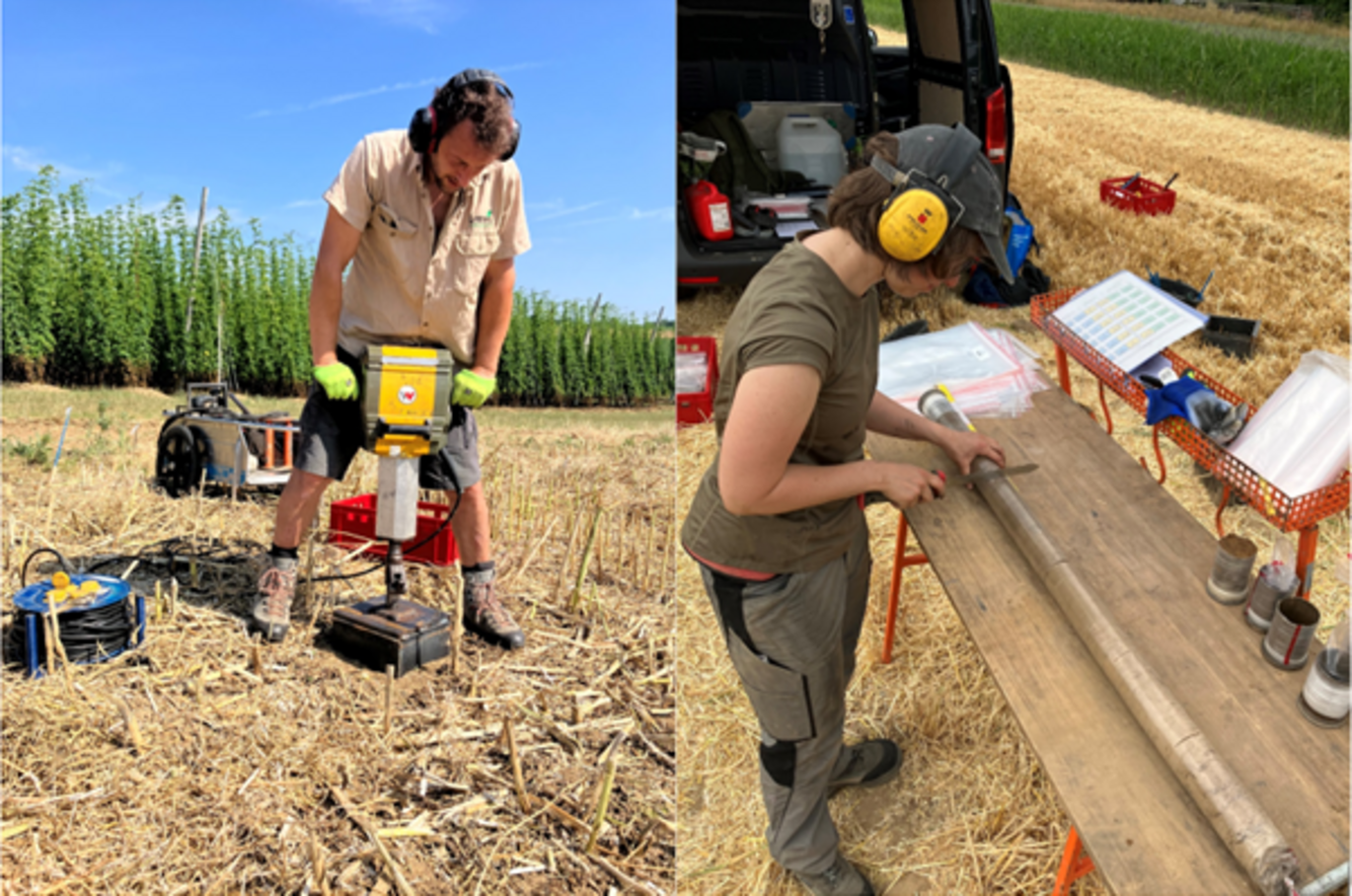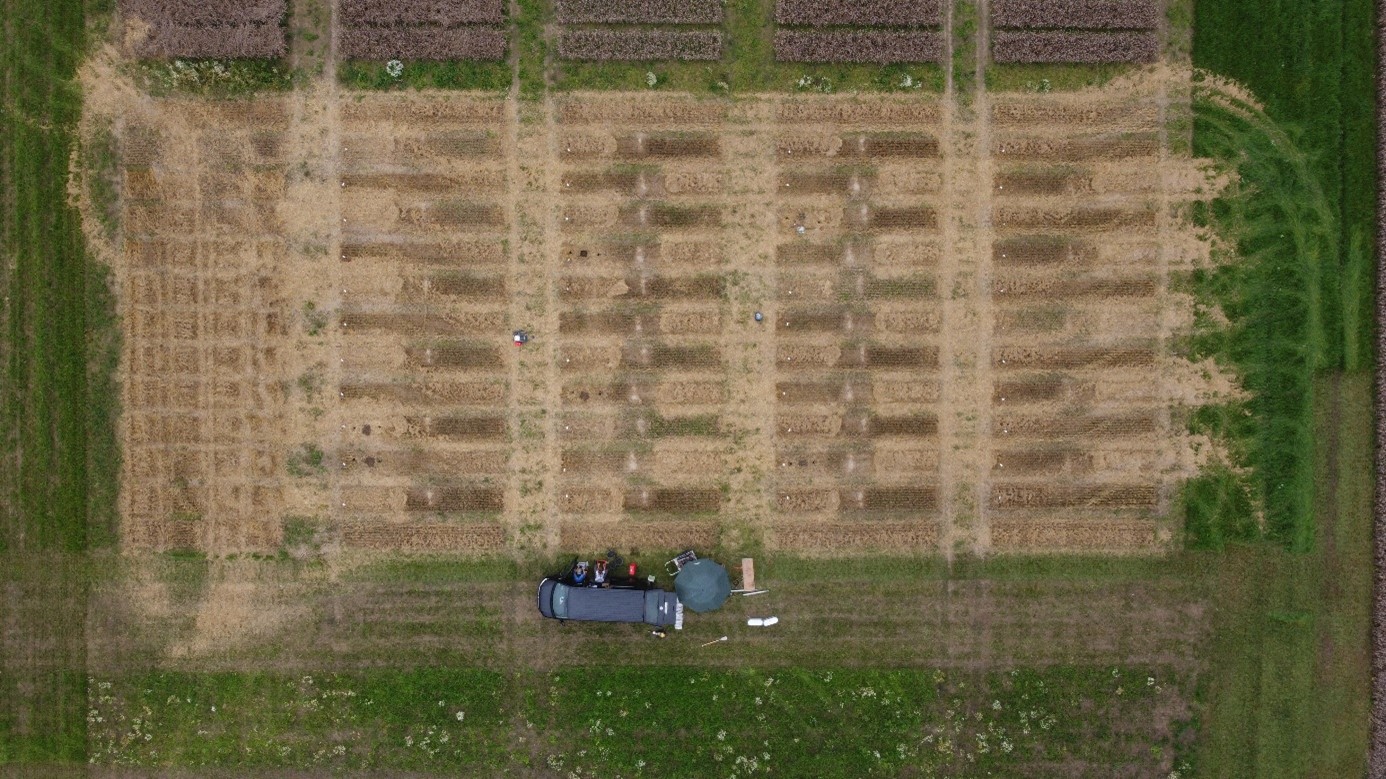Root sampling in N-fertilisation trials across Germany
How does a reduction of mineral N-fertilization by 20% affect the root biomass and root-to-shoot-ratio of major crops? This question is being addressed as a part of the EJP SOIL project SIMPLE.


SIMPLE is aimed at assessing possible effects of the EU Farm to Fork strategy on soil ecosystem services such as carbon sequestration in soils. One goal of the Farm to Fork strategy is a reduction of mineral N-fertilisation by 20%. The question has been raised, how this will affect root-derived carbon inputs to the soil, which are an important part of soil organic carbon dynamics.
In Germany, regions with too high nitrate-pollution in the groundwater have been identified and, in these areas, farmers are already required to reduce mineral fertilisation by 20% compared to the amount that is usually permitted. To investigate the effect of this law on yields and groundwater quality, field trials have been set up across Germany by a range of organizations such as agricultural chambers.
This summer, a field-team of the Thünen Institute set out to collect root samples from some of these field trials. They successfully sampled six trials of winter wheat, four trials of winter rapeseed and four trials of winter barley. In September, the team will additionally sample five trials of silage maize.
The root sampling always needs to happen after harvest, but before the next tillage. Catching these time windows can be quite an adventure, due to unpredictable weather conditions, broken harvesting machines and long distances between the sites, but despite these odds the team collected all samples.
Now these samples are waiting in the freezer to be washed and analysed. Updates on the results will follow in 2024.